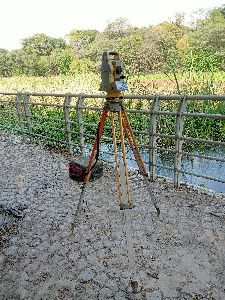
Water Body Surveyor
5,000 - 25,000 Per site
A water body survey is a comprehensive examination and mapping of features associated with bodies of water, such as lakes, rivers, ponds, reservoirs, and coastal areas. This type of survey is conducted to gather essential information about the physical characteristics, water quality, and surrounding environment of the water body. Water body surveys are crucial for environmental monitoring, ecological assessments, water resource management, and various engineering applications. Key components and features of a water body survey include: Bathymetric Mapping: Utilizing sonar technology to measure the depth of the water body, creating bathymetric maps that represent the underwater topography. Shoreline Mapping: Mapping the perimeter and features of the water body's shoreline, including vegetation, structures, and potential erosion areas. Water Quality Sampling: Collecting water samples to analyze key parameters such as temperature, pH, dissolved oxygen, nutrients, and pollutants. This information helps assess the health of the water body and its suitability for various uses. Sediment Analysis: Assessing the composition and characteristics of sediment at the bottom of the water body, providing insights into potential contamination and ecological conditions. Aquatic Habitat Mapping: Identifying and mapping different aquatic habitats within the water body, including areas important for fish spawning, plant growth, and wildlife habitat. Hydrographic Surveying: Measuring and mapping water flow, current velocities, and other hydrodynamic characteristics to understand the movement and dynamics of the water body. Vegetation Surveys: Identifying and mapping aquatic vegetation, such as submerged plants, floating plants, and emergent vegetation, which is crucial for assessing the ecological balance. Pollution Monitoring: Conducting surveys to identify and monitor sources of pollution, including point sources and non-point sources that may affect the water quality. Erosion and Sedimentation Studies: Assessing the impact of erosion and sedimentation on the water body, identifying areas prone to erosion and potential sedimentation issues. Geospatial Data Integration: Integrating survey data with geographic information systems (GIS) to create comprehensive maps and spatial datasets that facilitate analysis and decision-making. Remote Sensing: Using satellite imagery or aerial surveys to supplement ground-based data collection, providing a broader perspective of the water body and its surroundings. Water body surveys play a vital role in environmental conservation, water resource planning, and the sustainable management of aquatic ecosystems. The information gathered through these surveys contributes to informed decision-making, helping authorities, researchers, and environmentalists address challenges related to water quality, habitat preservation, and the overall health of water bodies.
...more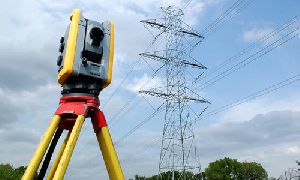
Transmission Line Surveyor
Type : Surveying Service

Total Station Surveyor
6,000 - 8,000 Per Day
A Total Station Survey is a precise and advanced land surveying technique that integrates electronic theodolite and distance measuring equipment into a single instrument. This sophisticated device is widely used in various fields, including civil engineering, construction, architecture, and geomatics, to gather accurate spatial data for mapping, design, and construction purposes. Key features and components of a Total Station Survey include: Electronic Theodolite: The total station incorporates a theodolite, an instrument used for measuring horizontal and vertical angles with high accuracy. The theodolite component allows surveyors to precisely measure angles and observe points of interest. Distance Measurement: Total stations are equipped with electronic distance measurement (EDM) technology, enabling precise and quick measurement of distances between the instrument and a target point. This is commonly achieved using laser or infrared signals. Automatic Angle and Distance Measurement: The total station automates the measurement process, allowing surveyors to quickly and efficiently gather angle and distance data with minimal manual intervention. Data Collection: Total stations are often connected to data collectors or computers, facilitating real-time data collection and storage. This data can include coordinates, angles, distances, and additional information relevant to the survey. Coordinate Calculation: Total stations provide the ability to calculate coordinates by triangulating distances and angles, allowing surveyors to determine the precise location of surveyed points in a designated coordinate system. Accuracy and Precision: Total stations offer high accuracy and precision, making them suitable for a wide range of applications, including topographic surveys, construction layout, boundary surveys, and monitoring of structural deformations. Integration with GPS: Some total stations are equipped with GPS capabilities, enabling integration with global navigation satellite systems for enhanced accuracy and geospatial data integration. Onboard Software: Total stations often feature onboard software that supports various surveying tasks, data processing, and the generation of maps and drawings. Remote Control: Advanced total stations may include remote control capabilities, allowing surveyors to operate the instrument from a distance, enhancing safety and efficiency, especially in challenging or hazardous terrain. Versatility: Total stations are versatile tools, capable of handling a variety of surveying tasks, including topographic mapping, construction layout, monitoring, and setting out precise points for infrastructure development. Total Station Surveys have revolutionized land surveying by providing a comprehensive and efficient solution for collecting accurate spatial data. The integration of measurement, calculation, and data recording capabilities makes total stations indispensable tools in modern surveying practices.
...more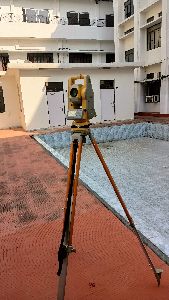
Topographical Survey
We Lucknow Land Surveyors doing A topographic or topographical land survey shows the height, depth, size and location of any manmade or natural features on a given parcel of land, as well as the changes or contours in elevation throughout the parcel. While boundary surveys focus on horizontal measurements, topographic surveys are about elevation. Thanks
...more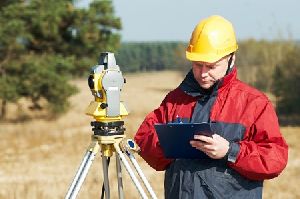
Top Land Surveyor
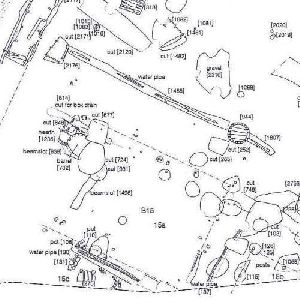
Survey Mapping
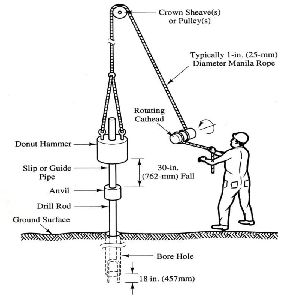
Standard Penetration Test
800 - 1,200 Per Meter
The Standard Penetration Test (SPT) is a widely used in-situ geotechnical testing method designed to assess the subsurface soil conditions at a specific location. It is commonly employed in the fields of civil engineering, geotechnical engineering, and construction to gather valuable information about soil properties. The test involves driving a standardized sampler into the ground and recording the number of blows required to penetrate the soil to a specified depth. Key features and steps of the Standard Penetration Test include: Test Apparatus: The primary equipment used in the SPT consists of a split-barrel sampler, a drill rod, a drive hammer, and a tripod setup. The split-barrel sampler is driven into the soil at the test location. Depth Measurement: The test is typically conducted at regular intervals as the drill rod is advanced into the ground. The depth of penetration is recorded to create a profile of soil properties at various depths. Energy Measurement: The energy transferred to the sampler is standardized by the weight of the hammer and the free-fall distance. This helps ensure consistency in the test results. Number of Blows: The number of blows required to achieve a penetration of 12 inches (305 mm) for the first 6 inches (152 mm) and 18 inches (457 mm) for the subsequent 6 inches is recorded. This measurement is known as the "N-value" or "blow count." Soil Sampling: After completing the test at a specific depth, the split-barrel sampler is retrieved, and the soil samples collected are used for further laboratory analysis to determine soil properties such as grain size, moisture content, and cohesion. Data Interpretation: The N-values obtained from the SPT are used to assess the relative density and shear strength of the soil. Engineers and geotechnical professionals analyze the results to make informed decisions regarding foundation design, slope stability, and other geotechnical considerations. Site Characterization: SPT results contribute to the overall site characterization, providing valuable information for construction projects, such as building foundations, bridges, and other infrastructure. Correlations: The N-values can be correlated with soil properties and used to estimate parameters such as the angle of internal friction, cohesion, and bearing capacity. The Standard Penetration Test is a cost-effective and widely accepted method for assessing subsurface soil conditions. Its simplicity and repeatability make it a valuable tool for geotechnical investigations, helping engineers and construction professionals make informed decisions about the design and construction of structures on a given site.
...more
Solar Panel Survey

Road Surveyor
4,000 - 8,000 Per Kilometer
A road survey is a comprehensive assessment and mapping of the terrain, topography, and surrounding environment along a designated route for the purpose of planning, designing, and constructing a road. This type of survey is a fundamental step in the development of transportation infrastructure, providing critical information for engineers, planners, and construction teams to ensure the effective and safe construction of roads. Key components and features of a road survey include: Route Analysis: Surveyors analyze and determine the most suitable route for the road, taking into consideration factors such as terrain, geological conditions, environmental impact, and existing infrastructure. Topographic Mapping: Detailed topographic maps are created to illustrate the existing features of the landscape, including elevation changes, water bodies, vegetation, and other elements that may influence road design. Geodetic Control: Establishing precise geodetic control points to ensure accurate measurements and alignment of the road with broader geospatial frameworks. Alignment and Profile Design: Surveyors design the horizontal alignment (curvature) and vertical profile (slope) of the road to optimize safety, efficiency, and adherence to engineering standards. Cross-Section Surveys: Conducting cross-sectional surveys along the road route to determine the shape and dimensions of the roadbed, embankments, and cuttings. Traffic Analysis: Assessing existing and projected traffic conditions to design roadways that meet capacity and safety requirements, including considerations for intersections, turning radii, and traffic flow. Subsurface Exploration: Investigating soil conditions and conducting geotechnical surveys to assess the stability of the roadbed and provide information for pavement design. Utility Coordination: Identifying and coordinating with utility providers to locate existing underground utilities and plan for their relocation or adjustment to avoid conflicts during construction. Environmental Impact Assessment: Evaluating the potential environmental impact of the road construction, including considerations for wildlife habitats, water resources, and other ecological factors. Construction Layout: Providing accurate survey data during the construction phase to guide the placement of road elements, such as lanes, shoulders, medians, and signage. Road surveys play a crucial role in ensuring the efficient, safe, and sustainable development of transportation networks. The information gathered during these surveys forms the basis for informed decision-making throughout the planning, design, and construction phases of road infrastructure projects.
...more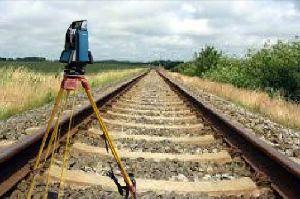
Railway Track Survey
6,000 - 8,000 Per Day
A Railway Track Survey is a specialized type of survey conducted to assess, design, and monitor the alignment, condition, and other critical factors related to railway tracks. Railway Track Surveyors play a vital role in ensuring the safe and efficient operation of railway systems. Their work encompasses various aspects of track infrastructure, from initial planning and construction to ongoing maintenance and improvements. Key responsibilities and features of a Railway Track Survey include: Alignment and Grade Analysis: Surveyors analyze and determine the optimal alignment and grade (slope) for railway tracks, considering factors such as terrain, curvature, and engineering standards. Geodetic Control: Establishing precise geodetic control points to maintain accurate measurements and alignment of the railway tracks, especially in large-scale rail networks. Topographic Mapping: Creating detailed topographic maps that illustrate the surrounding landscape, including elevation changes, water bodies, and relevant features affecting the railway track layout. Construction Layout: Providing accurate survey data during the construction phase to guide the placement of tracks, switches, crossings, and other infrastructure elements according to engineering plans. Monitoring and Inspection: Implementing monitoring systems to assess the ongoing condition of railway tracks, including regular inspections to identify signs of wear, misalignment, or other issues that could affect safety and efficiency. Clearance Analysis: Ensuring that there is adequate clearance for trains, including considerations for bridges, tunnels, platforms, and other structures along the railway route. Crossing and Junction Surveys: Surveying and designing railway crossings, junctions, and interchanges to facilitate smooth transitions between different rail lines and modes of transportation. Track Maintenance Planning: Providing data for the planning of track maintenance activities, such as tamping, ballast renewal, and rail replacement, to ensure the longevity and safety of the railway infrastructure. Safety Compliance: Ensuring that railway track projects adhere to safety regulations, standards, and guidelines set by relevant authorities. Integration of Technology: Utilizing advanced surveying technologies, such as GPS, LiDAR, and remote sensing, to enhance accuracy and efficiency in data collection and analysis. Railway Track Surveyors collaborate closely with engineers, transportation planners, and maintenance teams to optimize railway track design, construction, and maintenance. Their work contributes to the overall safety, reliability, and functionality of railway systems, supporting efficient transportation and commerce.
...more
quantity surveyor

Property Surveyor
Size : 5
Display Type : Analog
Diameter : 100 mm
...more
Pond Lake Surveyor
Type : Surveying Service

Nabl Testing
800 - 1,200 Per Meter
NABL Testing refers to testing services accredited by the National Accreditation Board for Testing and Calibration Laboratories (NABL), an autonomous body under the Department of Science and Technology, Government of India. NABL accreditation signifies that a testing laboratory meets specific international standards and has demonstrated competence and capability in conducting accurate and reliable testing across various fields. Key features of NABL Testing services include: Accreditation Assurance: NABL is the premier accreditation body in India, and laboratories accredited by NABL adhere to stringent quality standards, ensuring the reliability and credibility of their testing services. Compliance with Standards: NABL-accredited laboratories follow recognized international standards and guidelines for testing methodologies, ensuring that their procedures are in line with global best practices. Scope of Testing: NABL-accredited laboratories cover a wide range of testing services across industries such as healthcare, environment, food and agriculture, construction, electronics, and more. Technical Competence: Laboratories with NABL accreditation demonstrate technical competence in their specific testing domain. This involves having qualified personnel, appropriate equipment, and well-documented procedures. Quality Management System: NABL requires accredited laboratories to implement a robust Quality Management System (QMS) to ensure the consistency and reliability of testing processes. Calibration Services: NABL-accredited laboratories often provide calibration services, ensuring that measurement instruments and equipment are accurate and traceable to international standards. Client Confidence: NABL accreditation enhances client confidence in the accuracy and reliability of testing results. Many organizations, industries, and regulatory bodies recognize and prefer results from NABL-accredited laboratories. Continuous Improvement: Accredited laboratories are committed to continuous improvement. Regular assessments by NABL ensure that laboratories maintain high standards and stay abreast of advancements in testing methodologies. Industry Recognition: NABL accreditation is widely recognized and accepted in various industries, facilitating international trade and compliance with regulatory requirements. Traceability and Transparency: NABL-accredited laboratories ensure traceability of measurements and provide transparent reporting, enabling clients to trust and understand the testing processes. Whether it's testing the safety of food products, evaluating the quality of construction materials, or ensuring the accuracy of medical diagnostics, NABL Testing services play a crucial role in diverse sectors by providing reliable and standardized testing solutions.
...more
marine surveyor
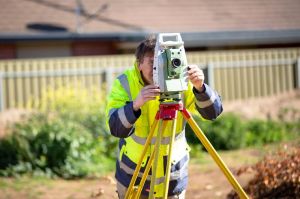
Licensed Surveyor
Type : Surveying Service
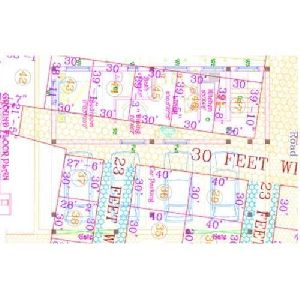
Layout Survey
5,000 - 8,000 Per visit
A Layout Survey is a specialized type of land survey that involves the precise measurement and marking of specific points on the ground to guide the placement and construction of structures or infrastructure according to design plans. This survey is crucial in ensuring that buildings, roads, utilities, and other elements are positioned accurately in accordance with approved designs and specifications. Key features of a Layout Survey include: Construction Staking: Land surveyors use layout surveys to stake out and mark the locations of proposed structures, roads, and utilities on the ground. This process provides clear guidance to construction teams during the building phase. Alignment Verification: Surveyors ensure that the proposed construction aligns with the approved plans and specifications. This includes confirming the correct position, orientation, and elevation of key points. Dimensional Accuracy: Accurate measurements are taken to guarantee that structures are positioned within the specified dimensions and setbacks outlined in the design plans. Elevation Control: Surveyors establish elevation benchmarks to maintain consistency in the vertical placement of structures, ensuring that they meet the required elevations and contours. Infrastructure Coordination: Layout surveys play a crucial role in coordinating the placement of various infrastructure components, such as utility lines, ensuring they are positioned correctly and avoid conflicts. Quality Control: By conducting layout surveys during different construction phases, surveyors help ensure that the project progresses according to the approved plans, minimizing errors and rework. GPS and Total Station Technology: Modern layout surveys often leverage advanced technologies, such as GPS and total stations, for precise positioning and data collection. Communication with Construction Teams: Surveyors collaborate closely with construction teams, providing on-site guidance and addressing any discrepancies or issues that may arise during the construction process. Layout surveys are fundamental to the successful execution of construction projects, providing a reliable foundation for builders and contractors to follow. This type of survey helps maintain accuracy and adherence to design specifications, ultimately contributing to the efficiency and quality of construction endeavors.
...more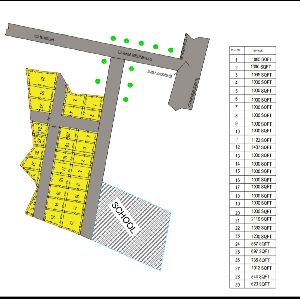
Layout Plot Marking
5,000 - 15,000 Per Day
Layout plot marking is a crucial process in the realm of land development and construction, where precision and accuracy are paramount. This specialized service involves the precise marking of specific points on a piece of land according to architectural or engineering plans, serving as a guide for the subsequent construction or development activities. Key aspects of Layout Plot Marking services include: Blueprint Analysis: Surveyors carefully review architectural or engineering plans to understand the proposed layout of structures, boundaries, and other key features. Coordinate Determination: Establishing precise coordinates for the intended points on the ground using surveying instruments such as total stations or GPS equipment. Stake Placement: Physically marking the ground with stakes, flags, or other markers to indicate the exact locations where structures, boundaries, or other elements are to be positioned. Alignment Verification: Ensuring that the marked points align accurately with the specifications outlined in the construction or development plans, both horizontally and vertically. Dimensional Accuracy: Verifying that the distances and dimensions between marked points adhere to the design specifications, ensuring that structures are positioned correctly. Construction Guidance: Providing clear guidance for construction teams by marking critical points, including corners, edges, and reference points, to facilitate accurate and efficient construction. Infrastructure Layout: Marking the positions of utilities, roads, and other infrastructure elements according to the layout plans to ensure proper integration with the overall development. Quality Control: Assisting in quality control by minimizing errors in the construction process. Accurate layout plot marking helps prevent issues such as misalignment or inaccuracies in the placement of structures. Communication with Construction Teams: Collaborating closely with construction teams to address any questions or concerns during the layout marking process and providing ongoing support as needed. Adaptability to Changes: In the event of design modifications or changes, surveyors can quickly update the layout plot markings to reflect the revised plans and specifications. Layout plot marking is an essential service that serves as a foundational step in the construction or development process. It provides construction teams with a clear roadmap for executing the plans accurately, contributing to the overall success and efficiency of the project.
...more
Layout Designing Survey
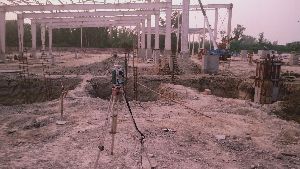
Land surveyor in lucknow
Best Land Surveyors in Lucknow
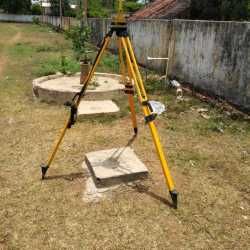
Land Plotting Surveyor
Type : Surveying Service
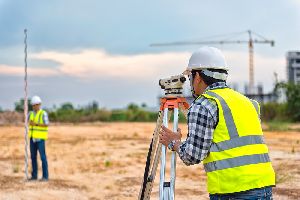
Industrial Land Surveyor
Type : Surveying Service

Housing Surveyor
Material : Metal
Application : Drawer
Color : Grey
Packaging Type : Corrugated Boxes
Size : Standard
Type : Magnetic
...more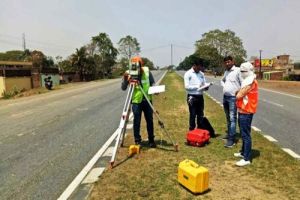
Highway Surveyor
Type : Surveying Service
Opening Hours
Established in the year 2016, we, Lucknow Land Surveyors, are one of the most reputed organizations engaged in proposing reliable and effective Construction and Engineering Survey Services and we also provide service for coordinate verification. We are the registered agent for AAI height clearance. Our offered services are operative and are performed within the stated period with the help of expert & proficient professionals. To keep their reliability and efficiency, we apply the latest methodologies, equipment and higher quality accessories in rendering these services.
We are on the path of constant success and growth under the leadership of our mentor and guide, Mr Umesh Yadav \', our owner who holds huge experience in this field. His outstanding entrepreneurship and guiding skills have helped us in accomplishing our organizational goals.
The services offered by us are
Land Surveying service
Canal surveying service
Topographic Survey Services
Building surveyor survey service
Electric line survey service
Railway track survey service
Soil testing service
And many more in this category
Our strength
With the support of the latest equipment’s and experienced professionals, we bring these services in a prompt, proficient and streamlined manner. Our offered services are under the client’s necessities and international standards of quality:
Why us?
Providing an extensive range of survey services
Excellent team of experts
Equipped with the latest technology
Experienced in many sectors